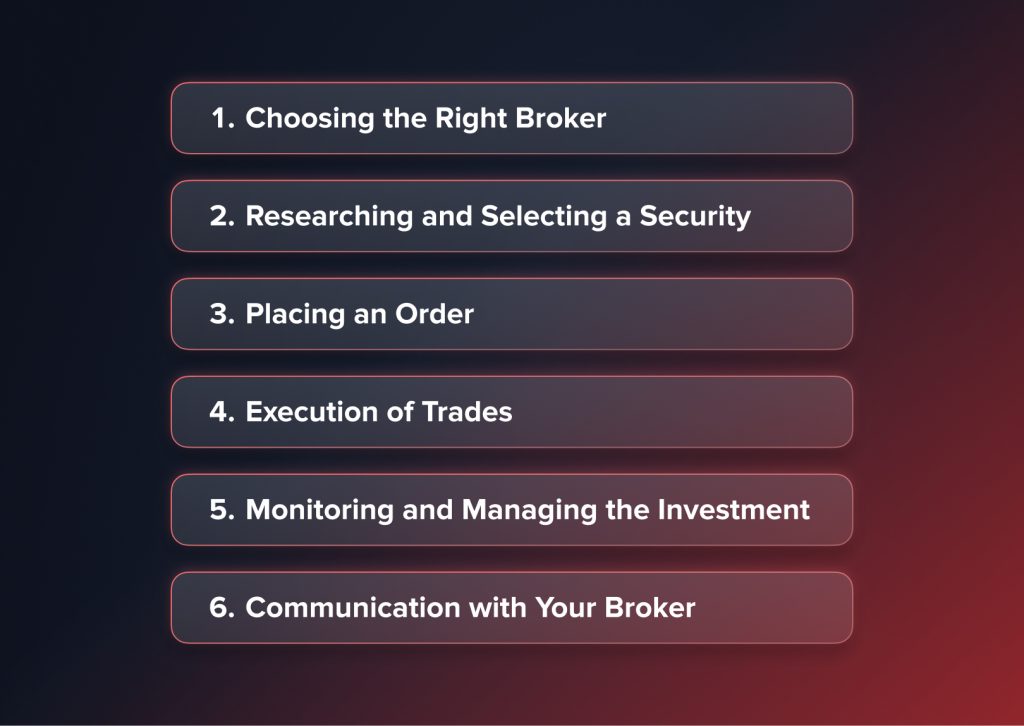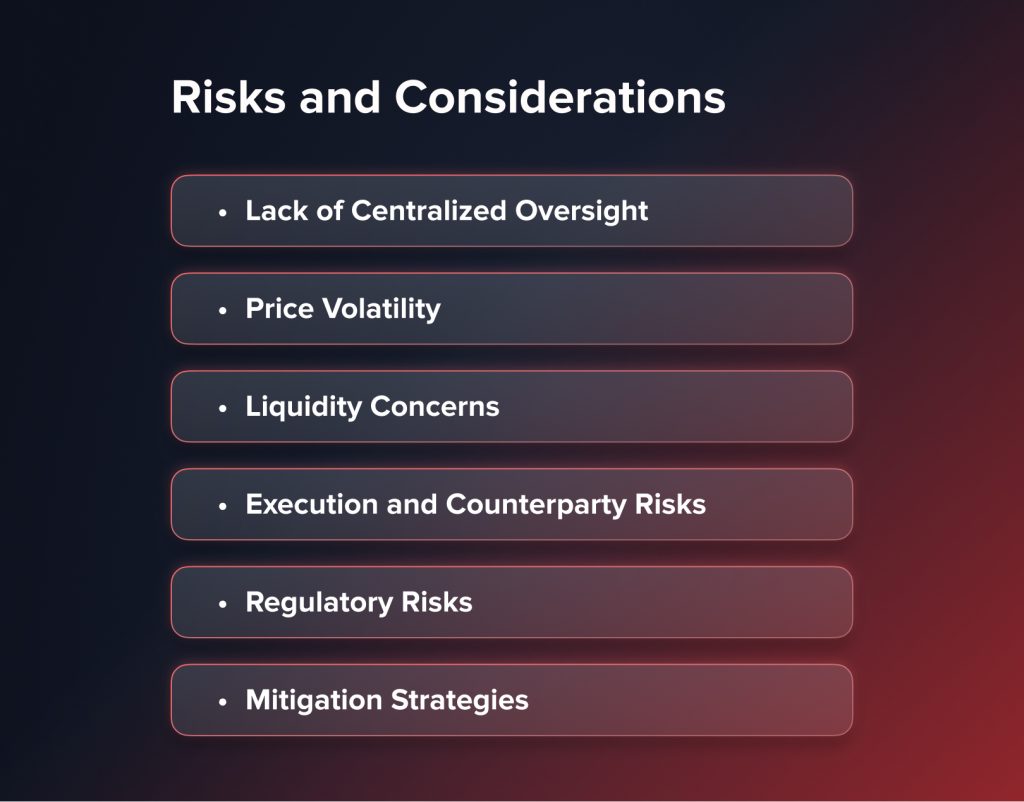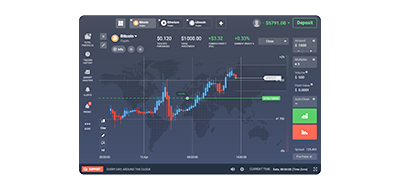Back

Trading
What is OTC Trading and How to Trade Securities Over-the-Counter

Written by:
Vitaly Makarenko
read
Published:
May 7, 2024Updated:
May 8, 2024views
Table of contents
Over-the-counter (OTC) trading, a decentralized way of exchanging securities not listed on formal exchanges, offers a flexible alternative to the traditional exchange-based market system. Unlike the structured environments of the New York Stock Exchange or Nasdaq, OTC trading occurs through a network of broker-dealers who facilitate transactions directly between parties. This system enables the trading of various securities, such as small company stocks, bonds, derivatives, foreign currencies, and even cryptocurrencies, often making it the only venue for trading certain assets. Understanding how to navigate this complex and less regulated market is crucial for investors exploring the broader spectrum of financial securities.
Understanding OTC Markets and Securities
Over-the-counter markets operate without a centralized trading floor, contrasting sharply with formal exchange mechanisms. In OTC markets, transactions are brokered directly between parties through a broker-dealer network, utilizing electronic systems and telephone communications to facilitate trades. This decentralized framework allows for trading diverse securities that might not find a platform in more regulated markets.
Types of Securities Traded OTC
- Small and Micro-Cap Stocks: Many companies traded on the OTC markets are smaller, often called micro-cap stocks. These companies might be in the early stages of development or may operate in niche industries. They often choose OTC trading because they either cannot meet the financial or regulatory requirements for listing on larger exchanges or they wish to avoid the high costs associated with such listings.
- American Depositary Receipts (ADRs): ADRs represent a significant portion of OTC trading and allow U.S. investors to purchase stocks in overseas companies without the complications of dealing with foreign securities regulations or currency conversions. These securities facilitate easier access to foreign equity markets and are essential for diversified investment strategies.
- Derivatives: The OTC markets are well-suited for derivatives that are customized to meet the specific needs of the traders, unlike standardized derivatives traded on exchanges. These include swaps, forwards, and exotic options. Derivatives traded OTC are tailored between parties to hedge risks or speculate on future price movements of underlying assets such as commodities, currencies, or stocks.
- Forex and Cryptocurrencies: The Forex market operates almost exclusively over the counter, with currencies traded directly between parties around the clock. This market is known for its high liquidity and operates on a global scale. Similarly, cryptocurrencies, which have surged in popularity and acceptance, are traded on various OTC platforms, providing traders and investors access to digital assets without the need for traditional exchanges.
How OTC Markets Function
The operation of OTC markets relies heavily on broker-dealers who facilitate the liquidity and availability of securities. They match buyers with sellers and help negotiate the terms of the transaction. Broker-dealers are crucial in ensuring that trades are executed fairly and efficiently, although this setup can sometimes result in less transparency than centralized exchanges.
In OTC markets, securities are often traded through platforms that categorize companies based on the quality and quantity of information they disclose. These platforms, like OTCQX, OTCQB, and Pink Open Market, each have different standards and requirements, offering varying degrees of regulatory oversight affecting the risk profiles of the securities traded therein.
The Mechanisms of OTC Trading
Over-the-counter trading operates through a distinctive set of mechanisms that sets it apart from traditional exchange-based trading, primarily due to its decentralized nature. Here is a closer look at how these mechanisms function:
Role of Broker-Dealers
In OTC trading, broker-dealers play a pivotal role. They act as intermediaries who facilitate trades between buyers and sellers. Unlike exchanges that provide a public order book, transactions in the OTC market are negotiated privately, which can involve more direct communication and negotiation between parties. Broker-dealers help negotiate these deals and provide pricing transparency and market information that is not as readily available in the OTC market. They may also provide post-trade services such as settlement and clearing, adding an extra layer of service that exchanges typically automate.
Decentralized Trading Platforms
Platforms like the OTC Markets Group serve as a crucial infrastructure for organizing the trade of OTC securities. They categorize companies into different markets—OTCQX, OTCQB, and Pink Open Market—based on a range of criteria, including financial standards, corporate governance, and disclosure.
- OTCQX: This is the top tier of the three marketplaces, designed for established, investor-focused companies that meet high financial standards and are committed to providing transparent trading and disclosure of information.
- OTCQB: This marketplace is for entrepreneurial and development-stage companies that cannot yet qualify for OTCQX but have demonstrated their commitment to providing a transparent trading environment with current financial reporting.
- Pink Open Market: This market offers trading for a wide spectrum of companies, from those with lower levels of compliance and disclosure to those subject to regulatory reporting, providing an opportunity for significantly more speculative trading.
Transparency and Information Flow
Regulatory oversight and transparency levels vary significantly across the different OTC markets. Companies traded on the OTCQX tend to have the highest level of disclosure and regulatory oversight, providing investors with greater transparency and reduced risk compared to lower tiers. As the tiers descend, the amount of available information can decrease, increasing potential risks due to less transparency. This structure allows investors to assess the risk associated with different securities and make informed decisions based on their risk tolerance and investment strategy.
Market Accessibility
OTC markets are accessible through broker-dealers who have access to these trading networks. Investors typically access OTC securities through their brokers’ platforms, which can vary widely in terms of technological sophistication and usability. Some brokers offer advanced online platforms that allow for electronic trading and real-time data, while others operate more traditionally via telephone or other non-electronic means.
How to Trade OTC Securities
Trading over-the-counter securities involves a few critical steps that differ from traditional exchange trading, primarily due to the decentralized and less regulated nature of OTC markets. Here’s a detailed look at the process:

Choosing the Right Broker
The initial and most crucial step in trading OTC securities is selecting a reputable broker with robust access to the OTC markets. Given the less regulated environment of OTC trading, it’s essential to partner with brokers who are not only well-connected within the OTC network but also uphold high standards of reliability and compliance. A good broker should provide transparent information about its operations, fees, and the way it handles orders and executes trades.
Researching and Selecting a Security
Once a reliable broker is in place, the next step is selecting a security to trade. This task involves substantial research to understand the various factors that may affect the security’s performance. Investors should consider the security’s market tier, the issuing company’s financial health and operational performance, and any sector-specific risks. Due diligence is crucial because information transparency can vary greatly between securities; some may come with higher risks than others.
Placing an Order
Investors will communicate with their broker to place an order with a chosen security in mind. This interaction should include a detailed discussion about the terms of the trade, such as the price limit, the number of shares, and the timing of the order. Due to the potential for lower liquidity and higher volatility in OTC securities, understanding and setting precise terms for the order can help manage risks associated with price fluctuations and order execution.
Execution of Trades
After placing an order, the broker is responsible for finding a counterparty to complete the trade. This search involves navigating the broker-dealer network to match buy and sell orders. The duration and success of this process depend heavily on the security’s liquidity and current market conditions. In some cases, especially with less liquid securities, completing a trade can take longer or require adjusting the order terms.
Monitoring and Managing the Investment
Post-trade, investors must continuously monitor their investments and stay updated with any developments related to the security or the issuing company. Given their potential for rapid changes in value, OTC securities may require more active management and readiness to make quick decisions based on new information.
Communication with Your Broker
Throughout the process, maintaining open lines of communication with your broker is key. Investors should feel confident in their broker’s commitment to providing updates and insights regarding the status of their orders and overall market conditions. This relationship is fundamental to effectively navigating the OTC landscape.
Risks and Considerations
Engaging in OTC trading provides access to a unique spectrum of investment opportunities but also introduces a set of inherent risks that differ from those encountered on regulated exchanges. Understanding these risks is crucial for investors looking to navigate this complex market effectively.

Lack of Centralized Oversight
One of the primary risks associated with OTC trading is the absence of centralized oversight. Unlike traditional exchanges, where a central authority monitors and regulates all transactions, OTC markets are decentralized and largely self-regulated. This can lead to significant price volatility and the potential for more pronounced discrepancies in the information available about securities. Investors must be vigilant and rely on thorough due diligence to mitigate the risks associated with less transparency.
Price Volatility
Securities traded over the counter can exhibit higher volatility due to the decentralized nature of these markets. Without the stabilizing influence of a large, centralized exchange, small market movements can disproportionately affect the price of securities. This volatility can be exacerbated by lower trading volumes and fewer market participants, which are common in OTC trading.
Liquidity Concerns
Another significant concern in OTC markets is liquidity. Many OTC securities are characterized by lower trading volumes, which can lead to larger spreads between the asking price set by sellers and the bidding price willing to be paid by buyers. This situation can make it challenging for investors to execute large orders without experiencing substantial price impacts. Additionally, quickly liquidating a position at a reasonable price can be difficult, particularly during market downturns or periods of financial stress.
Execution and Counterparty Risks
In OTC trading, investors also face execution risks. Since trades do not occur on a centralized exchange, there is no guarantee that an order will be executed at the desired time or price. Coupled with this is counterparty risk, where there is the possibility that the other party in the transaction may default on their obligations, either by failing to pay or deliver securities as agreed.
Regulatory Risks
While some OTC markets are regulated, the level of regulation is generally less stringent than that of formal exchanges. This can expose investors to potential fraud or unethical practices due to inadequate financial disclosures or misleading information from issuers. The burden of verifying the credibility and legality of the securities and their issuers often falls on the investor, requiring a proactive approach to risk management.
Mitigation Strategies
To mitigate these risks, investors should consider several strategies:
- Due Diligence: Conduct extensive research on the securities and the companies issuing them. This includes reviewing financial statements, news releases, market analysis, and any available third-party research.
- Experienced Brokers: Work with reputable and experienced brokers who understand the nuances of the OTC markets and can provide valuable insights and advice.
- Diversification: Spread investments across different securities and sectors to reduce potential losses associated with any single investment.
- Risk Management Tools: Utilize stop-loss orders and position sizing to manage investment exposure and minimize potential losses.
Regulatory Environment
While OTC trading operates outside the traditional exchange framework, it is not devoid of regulatory oversight. Regulatory bodies such as the Securities and Exchange Commission (SEC) in the United States play a crucial role in overseeing the operations within these markets. They enforce specific reporting requirements and standards that companies must adhere to, providing a level of protection against fraudulent activities and ensuring a degree of transparency.
However, the regulatory landscape for OTC trading is generally less stringent than that governing major stock exchanges. Investors may find discrepancies in the availability and reliability of information, making it essential to conduct thorough independent research.
Conclusion
OTC trading offers investors unique opportunities to diversify their portfolios by accessing a range of securities unavailable on standard exchanges. However, the complexities and risks associated with OTC trading demand a thorough understanding and careful strategy. By partnering with reputable brokers, conducting diligent research, and maintaining a cautious approach, investors can effectively navigate the OTC markets and capitalize on the opportunities they present.





